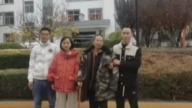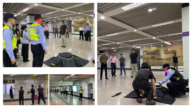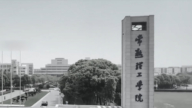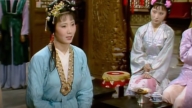【新唐人2015年02月13日讯】在中国大陆,“看病难、看病贵”现象长期持续,已严重困扰着老百姓的正常生活,即使有医疗保险,也无济于事。为什么会这样呢?日前有媒体披露,各种“潜规则”在医院内部大行其道,采购药品、器械要收回扣,医院建楼也要捞一笔,而这些医疗腐败成本都会转嫁到老百姓身上。安徽去年已有16家公立医院院长因涉贪落马。
《新华网》2月8号报导,安徽省检察机关反贪部门,去年共立案侦查医疗贪污贿赂案件108件、涉案123人,其中院长16人、副院长6人,个别地市甚至出现绝大部分二甲以上公立医院都有相关人员被查处的“塌方式”腐败。
安徽省检察院反贪局通报称,去年被查处的医院院长,包括阜阳市人民医院原院长高学中、六安市人民医院原院长朱德昌、蒙城县中医院原院长丁怀顺等16人,多个县级医疗“龙头”单位的主要负责人也被查。
报导指出,涉案医院的院长主要通过药品采购、医疗器材采购,以及基建工程等三个环节“以权换钱”。药品公司为了让医院多采购自己的药品,给予医院相关负责人及院长回扣,多家院长“欣然笑纳”,与药企或供应商形成高度默契。
上海维权人士杜亚明:“医生的处方权都拿回扣的,处方越是开的多,医生的回扣越是多。那么医生每天就有意识的往这方面发展,有些根本不需要用这种药的,他也为了拿回扣,大量的开这种药。”
在医疗器材采购方面,报导说,一些大型设备价值高昂,企业方和医院签订融资租赁协议,约定利润分成。而企业在得标后,为了取得高额利润,还常常行贿医院主要负责人,让医院优先、长期使用其医用耗材。
杜亚明:“进了医院,伤风咳嗽、或者你血压稍微高一点,所有的器械设备都要给你来一次,这样子你毛病还没看,你几千块的检查费已经跟进去了,尤其你如果生个癌啊,他会所有的科室,先外科、再是内科,再是心血管科,你每换一个科,他都给你重新再检查一遍。”
报导透露,院长在医院基建工程方面的权力更大,“胃口”也更大。他们手中的权力能够帮助承建商绕开规范的招标程序,承接造价动辄成百上千万元的医院基建工程。招标环节成为“走形式”。
旅美中国社会问题研究人士张健:“从它的工程项目开始,它就存在了腐败,存在了吃、拿、要回扣,以及偷工减料、豆腐渣工程,当然一个医院建成之后,又会在内部对员工进行苛扣,然后医生又对病人进行苛扣,变成站着进来,躺着出去,所以病人也会给医生红包,这就是一种腐败滋生的情况。”
中共检察机关办案人员称,院长贪腐,往往意味着这家医院已经从上到下“烂掉”。据基层医疗机构工作人员反映,院长和主要负责人受贿,医院其他干部和医生也往往受风气影响,甚至有了“法不责众”的观念,慢慢形成了“收回扣”的惯例。
张健:“医院的高层在选拔和任用各个科室的主任和高层的时候,又有钱权和色情的交易。医院对于采购部门也同样存在着药品方向把握不严,拿高额的回扣或者用假药、劣药来坑蒙拐骗患者。所以整个医院系统的腐败是方方面面的,包括现在的医托都是由医院来进行控制的。”
据检察机关的公开资料,16名落马院长的涉案金额巨大,如六安市人民医院原院长朱德昌在医院外科医技楼、综合门诊楼工程及药品集中采购过程中,非法收受贿赂279万元人民币,阜南县人民医院原院长刘学武更是涉嫌受贿上千万元。但他们的实际受贿金额,可能远远高于官方公布的数据。
《中国网》“观点中国”指出,大部分医院都设有内部监督机构,但是形同虚设,这与医院的专业性有关。进什么药品,买什么医疗器械,由权威说了算,但很多医院的院长不仅仅是医院的行政领导,更是该院的业务骨干、医术权威,集权力和技术决定权于一人,监督往往失效。
采访/朱智善 编辑/陈洁 后制/钟元
Corrupt Hospital Directors Obtain Bribes From Pharmaceutical Companies
Mainland Chinese have often experienced the difficulties and high costs of medical treatments. Even if they do have medical insurance, the issue still exists and people still pay a high price. The question remains, Why is it so?
Recently, it is reported that various “hidden rules" are prevailing within hospitals, which include claiming back-handers or returns for the procurement of medicines and equipment, as well as the building and construction. However, such corruption costs of the hospital are all passed on to the patients. Just last year, directors of 16 public hospitals in Anhui Province, faced charges of corruption.
“Xinhua" reported on Feb. 8, the Anti-corruption Bureau of Anhui Provincial Procuratorate officially investigated 108 cases related to corruption and bribery within the medical field,which involved 123 people including 16 directors and six deputy directors of hospitals. In some individual cities, the vast majority of First Class Grade II hospitals, were found to have staff investigated on charges of corruption.
Anti-Corruption Bureau of Anhui Provincial Procuratorate, disclosed that 16 hospital directors had been investigated and punished last year, including Gao Xuezhong, former director of the People’s Hospital of Fuyang City, Zhu Dechang, former director of the People’s Hospital of Lu’An City, Ding Huaishun, and the former director of Mengcheng County Hospital. In addition, the heads of “key” medical institutions of a few counties were also caught and investigated.
It is reported that the relevant presidents of the hospital mainly realised “the exchange of money with power” through three key channels including medicine procurement, medical equipment procurement, and the infrastructure projects. In order to sell more medicines to hospitals, the pharmaceutical companies gave back-hander payments to the relevant key persons and the president of the hospital. Many presidents of hospitals “are pleased to accept the back-handers", and formed a highly tacit understanding between themselves and the pharmaceutical companies or suppliers.
Shanghai activist Du Yaming: “When doctors issue prescriptions, they take the corrupt money. More open prescriptions, more back-handers. Then the doctor intentionally issues the prescriptions for such medicines. Some patients may not even need to use such medicines, yet doctors still prescribe them, in the process of accepting paybacks.”
Regarding the medical equipment procurement, it is reported that hospitals signed finance lease agreements for those high-value large scale equipment with the suppliers, and set up profit-sharing agreements. After the suppliers won the bid, in order to obtain high profits, they often bribe the hospital heads so that the hospital prioritises consuming their medical supplies for a long period of time.
Du Yaming: “Once you went to the hospital, colds and coughs or just slightly higher blood pressure, all the appliances and equipment provided by them, was used to examine you. So before you receive the treatment, you have to pay a few thousands RMB for the examination fee. Especially if you suffered with cancer, you would be examined through various channels, first surgery, then internal medicine, cardiology etc. Every time when you change a department, you would be re-checked again."
The reports revealed that a hospital president owns greater power in hospital infrastructure projects, and their “appetite" for paybacks is even greater. The power in their hands helps contractors shunning standard tendering procedures, and winning the infrastructure projects of a hospital which costs hundreds of thousands of yuan. The bidding procedures become “pro forma."
Zhang Jian, a Chinese social problems researcher in America. He said: “A project from its beginning, has the existence of corruption, including meals, taking money, taking kickbacks, as well as jerry and shabby projects. Of course, after the completion of a hospital, the hospital is hard on internal staff, and then require the doctors to be hard on patients which costs the patient a lot of money. So the patients have to give red envelopes to bribe the doctors. This is the corruption situation in our hospitals."
The investigators of the procurator department of the Chinese Communist Party (CCP) said, the corruption of the president of a hospital often means that the hospital has been “rotten" from top to bottom. According to staff at the grassroots of these medical institutions, the presidents and other key people, are also involved in the bribery. This then has a knock on effect to the other staff who have Come to realise, “law does not punish many law breakers", and that slowly a situation forms and becomes routine of “taking kickbacks" in hospital practice.
Zhang Jian: “When the executives of hospitals promote or select the appointment of directors and senior positions of various departments, they use their position of power for exchanging money and sexual trade. The hospitals also have such problems as lax control and management over procurement departments for purchasing medicines, taking substantial kickbacks or using fake or inferior medicines to swindle patients. So the whole hospital system is corruptive in all aspects, and this even includes the current hospital scalpers, who are now controlled by the hospitals."
According to the public information published
by the procurator department,
these 16 presidents of the hospitals in question, are involved
in huge of money.
For example, the former president Zhu Dechang of Lu’An
People’s Hospital, illegally accepted bribes of 2.79 million
yuan when he was in charge of the construction of surgical
medical technology building and
comprehensive outpatient building,
he was also involved in the centralised medicine procurement process. As the former president of Funan County People’s Hospital, Liu Xuewu is suspected of taking bribes of tens of million RMB. But their actual amount of bribes may be far higher than the officially published amounts.
“View China" of “China Network" pointed out that most hospitals set up internal oversight bodies, but they are almost non-existent, which is related to the professional features of a hospital. What sort of specific medicines, and what sort of medical equipment are used, are all determined by the authority of the hospital. However, many presidents of hospitals are not only the head of administrative authority of the hospital, but also the backbone of the hospital business, medical academic authority, who have the administrative power and decision-making power on medical skills. So the internal supervision system often fails.
Interview/Zhu Zhishan Edit/ChenJie Post-Production/ZhongYuan































